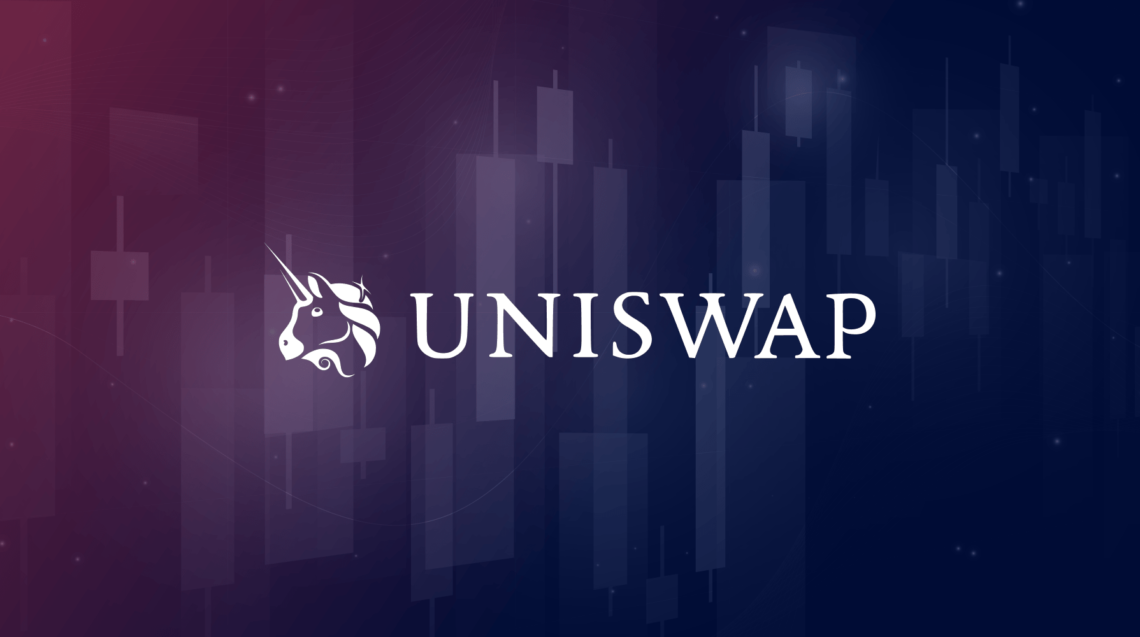In this article, we tried to answer questions such as what is UNI coin, what is the cryptocurrency Uniswap (UNI), how to buy UNI coin. Here are the details about the UNI coin review and future…
The Uniswap (UNI) protocol is an example of the power of dApps and the driving force behind the rapid growth of the DeFi ecosystem.
How much is UNI Coin?
According to current crypto money market data, 1 UNI Coin 95.05 TL is traded for TL. UNI Coin price changed from to 6.19% in the last 24 hours. The trading volume of UNI Coin in the last 24 hours is 404,812,523 $ dollars, and its total market cap is at $2,899,654,462 dollars.
How much is UNI Coin?
According to current crypto money market data, 1 UNI Coin 6.36 $ is traded at $.
What is Uniswap (UNI)?
Uniswap is one of the largest decentralized cryptocurrency exchanges by trading volume and a leader in decentralized finance (DeFi). The Uniswap platform is a blockchain protocol that uses automated market makers (AMMs) and liquidity pools to facilitate peer-to-peer trading. Liquidity providers add tokens to Uniswap pools and are rewarded with a fee proportional to their share in the pool.
In the traditional financial world, stock markets provide a market for buying and selling stocks, commodities, currencies, bonds, derivatives and other financial instruments, while forex markets provide a space for exchanging national currencies. These exchanges provide a very important source of market liquidity and are central to the stability of the global financial system. Cryptocurrency exchanges mimic this market dynamic, offering a space for trading digital assets in a format very similar to traditional online stock markets.
Although cryptocurrencies are to some extent based on decentralized blockchain technology, most of the world’s leading crypto exchanges are inherently decentralized. Despite the well-known benefits of centralization, such as strong liquidity and fast payment times, concerns over individual user autonomy are driving the development of decentralized exchanges (DEXs). These emerging alternatives are fully enabled by blockchain technology and use smart contracts to execute transactions between buyers and sellers in an automated, reliable manner.
However, decentralized exchanges have faced growing pains and depend on the current limitations of blockchain technology. To date, network scalability, segmented liquidity, and discrete user experience issues have been major barriers to widespread DEX adoption. To address these shortcomings, protocols such as Uniswap are developing tools to enhance the functionality of DEXs. As pioneers of liquidity pool mechanisms and the broader decentralized finance (DeFi) ecosystem, Uniswap has become the world’s largest DEX.
What is UNI Coin?
Uniswap is a decentralized exchange protocol running on the Ethereum blockchain. The platform enables peer-to-peer (P2P) cryptocurrency trading conducted without order books or a central intermediary. The Uniswap platform achieves this with a liquidity pool model that uses automated smart contracts to enable potential investors to access user-funded reserves of competing tokens as the primary source of market liquidity. Anyone can trade tokens, contribute tokens to a pool and earn fees, or list a token on Uniswap. Since Uniswap is built on Ethereum, almost all ERC-20 tokens can be exchanged using Uniswap. Also, there are no listing fees for a token available for trading on Uniswap.
In traditional markets, order books compile an exchange’s open buy and sell orders for any asset. If there is a significant difference between the prices that buyers are willing to pay and the prices that sellers are willing to accept, the resulting lack of trading activity leads to reduced liquidity. This means that if you hold an asset that is affected in this way, it will be more difficult to sell. Uniswap pools minimize this misalignment between buyer and seller market orders by creating a deep reservoir of assets for trading, which helps mitigate potential market liquidity issues. In addition, Uniswap’s automated market maker technology algorithmically analyzes liquidity pools to offer the best prices for specific trades.

How Does Uniswap Work?
The most important innovation that makes the Uniswap protocol work is automated market maker (AMM) technology. AMM is a smart contract that manages Uniswap pools that provide tokens used to execute a trade. When a trade is made, Uniswap’s AMM algorithm determines the effective price of the token based on the supply and demand dynamics among the respective tokens in these liquidity pools.
The platform currently charges a 0.3% transaction fee when users trade with a Uniswap liquidity pool. Any user contributing to a Uniswap liquidity pool receives a portion of these fees in proportion to their stake in the entire pool. For example, if the fees collected in a particular market are equal to $100 and you have provided 50% of the pool’s liquidity, you will receive $50. Uniswap does not collect any of the transaction fees charged on its platform; instead, profits are distributed only among Uniswap’s user community.
Fixed Product Formula
Each market ERC-20 token pair held in a liquidity pool (for example, ETH/DAI), x*y=k “fixed product” formula It is managed by an AMM created to accept one token for another, preserving what is known as In this formula, both x and y are variables that represent the total value of a token in the market pair. For example, x is the total value of ETH and y is the total value of DAI in a proposed ETH/DAI liquidity pool. Uniswap multiplies these two numbers to determine k, which represents the pool liquidity of the market pair.
The basic requirement that underpins transactions in Uniswap is that the pool liquidity remains constant even if the x or y values change. As a result, each trade affects the x and y price, while the liquidity remains constant. For example, if a trader buys 1 ETH for 330 DAI, the ETH ratio in the liquidity pool will decrease, while the DAI ratio will increase to hold one ETH minus and 330 more DAI tokens in the pool. As a result, the ETH price will rise while the DAI price falls. This formula provides care that reflects fair market value while maintaining liquidity at all times.
Uniswap Governance: UNI Token
In September 2020, Uniswap introduced UNI, a local government token that facilitates greater community engagement and oversight. UNI owners can vote on Uniswap project developments that set the platform’s evolutionary trajectory. UNI holders can also use the token to fund liquidity mining pools, grants, partnerships, and other growth-driven initiatives that expand Uniswap’s availability and reach. As the Uniswap community grows and UNI further diversifies its assets, the founding team will play an increasingly less role in platform management by design. This is proof that the concepts of decentralization and alignment of incentives, both central to the DeFi revolution, have been put into practice by Uniswap.
Following a common token distribution trend in the DeFi ecosystem, Uniswap airdropped 400 UNI tokens to anyone using the platform. Although UNI serves as a governance token on the Uniswap platform, investors can trade the token on exchanges and treat it as a speculative investment.
Constant Momentum
Uniswap protocol is a key player among decentralized exchanges and is one of the driving forces behind the accelerating growth of DeFi products and services. Uniswap’s recently released UNI governance token is based on the principle of community self-sufficiency by enabling stakeholders to participate in protocol decision-making, and the platform itself serves as a successful model for what decentralized applications (dApps) can do.

Uniswap (UNI) Coin Comment and Future
Uniswap’s cryptocurrency UNI plays an important role in its conservation and operation.
Users with UNI help manage the protocol by voting on proposals that can advance Uniswap’s development and improve its ecosystem.
The Uniswap team created UNI with the idea that the protocol will be owned and operated by its users, helping it become a self-sustaining model.
Traders may find Uniswap attractive due to its ability to provide access to newer and less liquid cryptocurrencies not found on more traditional exchanges.
Uniswap may also be of interest to investors who want to access a wide variety of projects built on the Ethereum blockchain.
To date, there are several wallets that have already integrated Uniswap to allow users to trade cryptocurrencies within their ecosystem.







